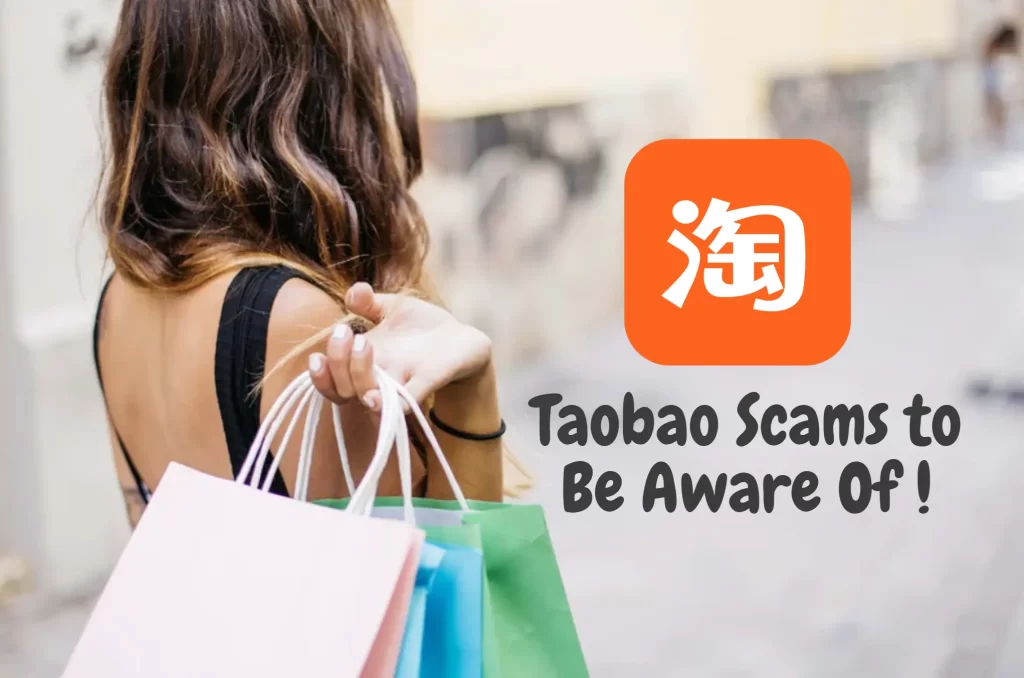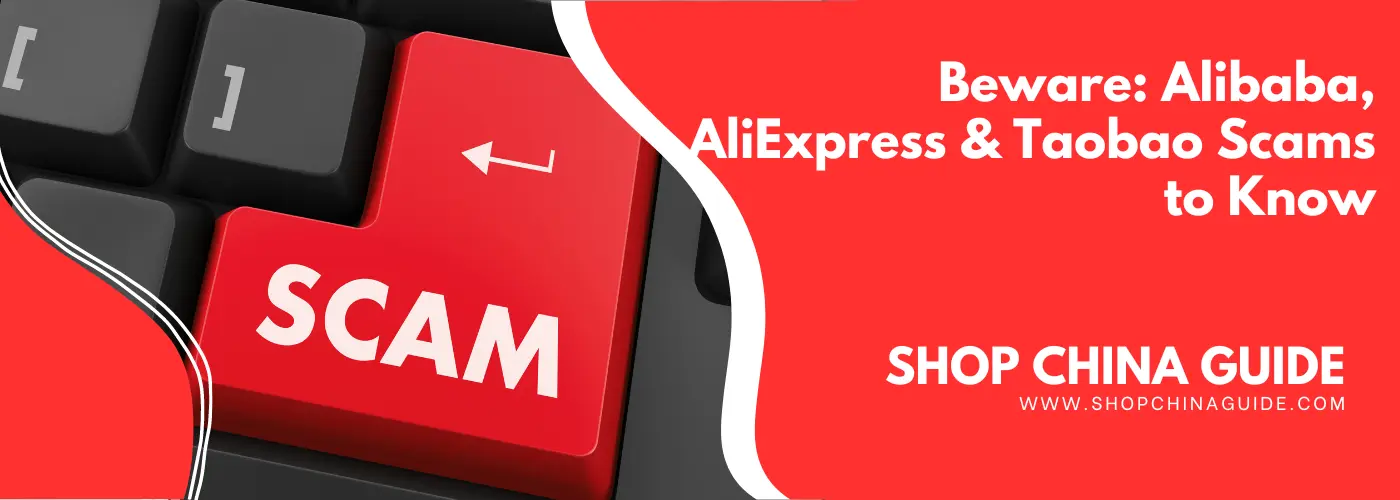The rise of online shopping has not only brought immense convenience to consumers worldwide but also introduced certain risks. In today’s digital age, where almost anything can be purchased with just a few clicks, understanding the landscape of e-commerce platforms is crucial for both savvy shoppers and novice buyers.
Among the plethora of online marketplaces, three major platforms from China have notably made a significant mark on the global stage: Alibaba, AliExpress (also known as 速卖通 in Chinese), and Taobao. Each of these platforms offers a unique shopping experience and caters to different audiences.
- Alibaba: Primarily a platform for B2B (Business to Business) transactions, it connects manufacturers, suppliers, and wholesalers with overseas buyers. Its vast array of products ranges from raw materials to finished goods.
- AliExpress: A global retail marketplace that offers a wide selection of products at factory prices. It caters mainly to international buyers, providing a platform for Chinese businesses, both large and small, to sell their products.
- Taobao: China’s largest C2C (Consumer to Consumer) online shopping platform, Taobao is akin to an expansive digital bazaar where individual sellers offer products directly to consumers.
As we delve deeper into the online shopping realm, it’s essential to be aware of the potential pitfalls and learn how to navigate these platforms safely. The subsequent sections will highlight some common scams and how to steer clear of them.
Common Scams on Alibaba

Alibaba is a leading platform for global wholesale trade, connecting suppliers with buyers from around the world. However, with its vast reach comes the challenge of discerning genuine businesses from scammers. Here are some common deceptive tactics to watch out for:
Falsified Company Verification
One of the primary advantages of Alibaba is its system of verifying sellers. However, some deceitful sellers manage to forge company certification information, giving the illusion of a legitimate and trusted business. Before initiating transactions, it’s crucial to independently verify any credentials and potentially even seek third-party validation.
Luring with False Low Prices
Price is often the main attraction for buyers. Unfortunately, some sellers exploit this by listing products at unbelievably low prices. Such offers are often too good to be true and can be a clear indicator of a scam. When a price seems unusually low, it’s advisable to proceed with caution and conduct further checks.
Misleading Samples
Samples are a conventional means for buyers to assess product quality. However, some sellers provide samples that are either of higher quality than the bulk products or entirely different. It’s essential to ensure the consistency of the product quality by ordering multiple samples or by visiting the manufacturing facility if possible.
High Upfront Payments
Another common scam involves sellers demanding exorbitant advance payments. While it’s customary to make a deposit before production, excessive upfront fees, especially without proper guarantees, can be a red flag. It’s always safer to negotiate payment terms and possibly use escrow services to ensure payment safety.
Navigating Alibaba requires a mix of caution, research, and, at times, intuition. Always remember the adage: “If it sounds too good to be true, it probably is.”
AliExpress Scams to Watch Out For

AliExpress, as a popular global online retail marketplace under the Alibaba Group, has enabled countless businesses and consumers to buy products directly from manufacturers and wholesalers. Yet, like any other large online platform, it’s not exempt from scams and deceitful practices. Here’s a breakdown of some frequent scams to be wary of:
Product Description Mismatch
The most reported grievance on AliExpress is when the received product doesn’t match the description listed on the platform. Some sellers use enhanced photos, exaggerated descriptions, or even different product specifications to lure buyers. Always check reviews and feedback, and maybe even reach out to previous buyers to ensure the product’s authenticity.
Counterfeit Brand Imagery
Another common pitfall is the use of counterfeit or stolen brand images. This tactic gives the impression that the product belongs to a reputable brand when it’s actually a knock-off. While branded goods are available on AliExpress, buyers should be cautious, especially if prices seem unusually low for branded items. One way to circumvent this is to buy directly from the brand’s official store, if they have one on AliExpress.
You may also like: Why is there identical product information in different Taobao stores?
Excessive Shipping or Hidden Fees
At times, a product might seem like a steal due to its low price, only for the buyer to find out about exorbitant shipping fees or other hidden charges later. Always scrutinize the total cost, including shipping and any other fees, before completing a purchase. Some sellers might also offer “free shipping” but compensate by inflating the product price.
False Shipping Tracking
Lastly, there’s the scam of providing fake shipping tracking information. This gives the illusion that the product is on its way when, in reality, it hasn’t been shipped or doesn’t exist at all. Regularly check tracking updates and communicate with the seller. If tracking seems stagnant for an extended period or shows inconsistencies, it might be a cause for concern.
In essence, while AliExpress offers an array of products and deals, it’s imperative to exercise diligence, research, and patience. Always opt for sellers with high ratings, read reviews, and keep communication lines open.
Taobao Scams to Be Aware Of

Taobao, a leading e-commerce platform in China under the Alibaba Group, serves millions of users daily. Its vast range of products and user-friendly interface makes it the go-to shopping site for many. However, its enormous scale also attracts dishonest sellers. Below are some common scams on Taobao that buyers should be alert to:
Fake Reputation Boosting
One deceptive practice is reputation masquerading. Some sellers buy reputation points or use counterfeit accounts to artificially inflate their credibility. This makes their store appear more trustworthy than it actually is. It’s essential to look beyond just the reputation points and delve into the feedback and reviews of the seller.
Phishing Links and Fake Websites
Misleading links and imitation websites can be used to trick buyers into divulging personal information. Always ensure that you are navigating within the official Taobao domain and avoid clicking on suspicious external links sent by sellers.
Price Traps
The allure of unusually low prices can be hard to resist. But if a deal appears too good to be true, it likely is. Such price traps are designed to captivate buyers into making hasty decisions. Always compare prices across multiple sellers and verify product authenticity through reviews and seller communication.
You may also like: Why are Prices on Taobao Remarkably Affordable? (9 Reasons)
Counterfeit Goods
It’s not uncommon for some sellers to claim their product is genuine, only to deliver a knock-off or counterfeit item. Authenticity guarantees, while reassuring, are not always foolproof. Hence, always cross-check product details, ask for more images, or even verify with the brand’s official site or store if possible.
Payment Pitfalls
Some deceitful sellers might encourage buyers to use unofficial payment methods, putting buyers at risk of financial loss or data theft. Stick to Taobao’s official payment channels and avoid transferring money directly to a seller or using unverified third-party payment platforms.
Delayed or False Shipping
Lastly, there are those who either delay shipping indefinitely or provide false shipping information. Regularly monitor the shipping status, and if there are prolonged delays or inconsistencies in tracking data, reach out to the seller or Taobao’s customer service.
You may also like: Is It Normal to Receive Phone Calls from China After Shopping on Taobao?
In conclusion, Taobao is a treasure trove of products, but like any vast marketplace, it requires users to be cautious and informed. Always prioritize safety over savings and keep an open line of communication with sellers.
Tips to Avoid E-Commerce Scams
As e-commerce platforms continue to grow in popularity, it becomes increasingly crucial for consumers to safeguard themselves against potential scams. The pitfalls may seem daunting, but by taking proactive steps, buyers can shop with confidence. Here are some recommended strategies to stay safe online:
Strengthen Your Ability to Discern
Enhancing one’s ability to distinguish between genuine and fake information is the first line of defense. Educate yourself on common online scams and red flags. Familiarize yourself with how genuine product listings and authentic seller profiles look and contrast them with suspicious ones.
Scrutinize Seller Details and Reviews
Always meticulously inspect the details and feedback of sellers. While a high rating might seem promising, delve deeper into the reviews, especially the negative ones. Look for patterns of complaints or praises. Some sellers might have a series of generic positive reviews, which could be a sign of manipulation.
Use Official Payment Methods
While various payment options are often available, it’s always safest to use the platform’s official payment channels. These methods usually have safety mechanisms in place to protect both the buyer and seller, and they often come with dispute resolution services.
Communicate Before Committing
Before finalizing a purchase, engage in thorough communication with the seller. Ask questions about the product, request additional pictures, and clarify any doubts you might have. Direct communication can often reveal the genuineness of a seller.
Inspect Upon Receipt
Once your product arrives, immediately inspect its condition and authenticity. Ensure it matches the description and the quality you expected. If there are any discrepancies, it’s crucial to raise it immediately, as many platforms have time limits for disputes.
To sum it up, navigating e-commerce platforms safely is a balance between vigilance and informed decision-making. Equip yourself with knowledge, trust your instincts, and always prioritize safety over a seemingly good deal.
You may also like: Is Shopping on Taobao Secure?
Concluding Thoughts
In the vast realm of e-commerce, both convenience and potential hazards coexist. As we’ve delved into the intricacies of common scams on platforms like Alibaba, AliExpress, and Taobao, it’s evident that caution is paramount. Yet, beyond the discussed measures, there are broader insights to consider as we navigate this digital marketplace:
The Evolving Nature of Scams
Scammers constantly adapt and evolve their methods. Today’s common scams might be replaced by more sophisticated ones tomorrow. Regularly updating oneself on the latest e-commerce scams and tactics is vital.
Building a Trusted Network
Engaging in online communities that share reviews and experiences can be beneficial. Such communities act as watchdogs, and their collective wisdom can steer you clear of potential scams.
Relying on Technology
Modern technology offers various tools and plugins designed to enhance online shopping safety. From browser extensions that verify the authenticity of a website to AI-driven software that flags suspicious product listings, leaning on technology can be a smart move.
The Human Element
While the digital world often feels automated, remember that behind every transaction is a human. Trusting your instincts, engaging in direct communication, and acknowledging the human element can sometimes be the best defense against scams.
In wrapping up, while the e-commerce landscape can seem fraught with hazards, it also offers unparalleled opportunities. The key is to arm oneself with knowledge, stay vigilant, and remember that every digital interaction has a human touchpoint. With the right precautions, online shopping can remain a delightful and safe experience.

